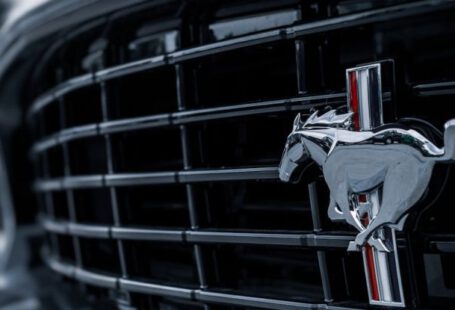Turbochargers have become a popular modification among Mustang enthusiasts looking to boost their car’s performance. However, beyond the increased horsepower and torque gains, many wonder how turbochargers affect the fuel efficiency of these iconic muscle cars. In this article, we delve into the impact turbochargers have on Mustang fuel efficiency, exploring the intricate relationship between forced induction and gas mileage.
The Basics of Turbocharging in Mustangs
Before delving into how turbochargers affect fuel efficiency in Mustangs, it’s essential to understand how these devices work. Turbochargers are aftermarket components that force more air into the engine, allowing for increased power output. By compressing air and forcing it into the combustion chamber, turbochargers significantly enhance performance, giving Mustangs a substantial horsepower and torque boost.
Increased Power Output and Fuel Efficiency
One might assume that the added power from a turbocharger would come at the cost of fuel efficiency. Surprisingly, turbochargers can actually improve fuel economy when driven sensibly. The increased power output allows the engine to operate more efficiently at lower RPMs, reducing the need for heavy throttle input. This means that when cruising at steady speeds, a turbocharged Mustang can achieve better fuel efficiency compared to its naturally aspirated counterpart.
The Role of Engine Tuning
While turbochargers have the potential to enhance fuel efficiency, proper engine tuning is crucial to achieving optimal results. A well-tuned engine ensures that the air-fuel mixture is balanced, maximizing combustion efficiency. With the right tuning, a turbocharged Mustang can deliver both increased power and improved fuel economy, striking a delicate balance between performance and efficiency.
Driving Behavior and Fuel Efficiency
It’s important to note that fuel efficiency with a turbocharger heavily depends on driving behavior. Aggressive driving, such as frequently engaging in spirited acceleration or high-speed runs, can significantly impact fuel economy. Turbocharged engines are most efficient when driven conservatively, with gradual acceleration and maintaining steady speeds. By adopting a more relaxed driving style, Mustang owners can make the most of their turbocharger’s performance gains while still enjoying decent fuel efficiency.
The Impact of Turbo Lag
One factor that can affect fuel efficiency with a turbocharger is turbo lag. Turbo lag refers to the delay between hitting the throttle and the turbocharger spooling up to provide boost. During this lag, the engine may consume more fuel to compensate for the lack of immediate power delivery. Minimizing turbo lag through proper turbo sizing, tuning, and driving technique can help improve fuel efficiency in turbocharged Mustangs.
Maintenance and Fuel Efficiency
Maintaining a turbocharged Mustang is crucial for preserving fuel efficiency. Regular maintenance, including timely oil changes and air filter replacements, ensures that the turbocharger operates optimally. Neglecting maintenance can lead to decreased efficiency, as a poorly maintained turbocharger may not deliver the intended performance gains and could even cause engine damage, further impacting fuel economy.
The Verdict: Balancing Performance and Efficiency
In conclusion, turbochargers can have a positive impact on Mustang fuel efficiency when paired with proper engine tuning and mindful driving habits. While turbochargers offer significant performance gains, achieving optimal fuel economy with forced induction requires a balanced approach. By maintaining their turbocharged Mustangs diligently and driving sensibly, enthusiasts can enjoy the best of both worlds—increased power and improved fuel efficiency.





